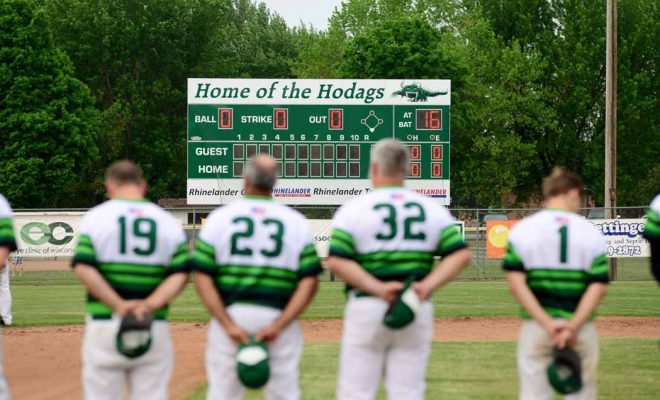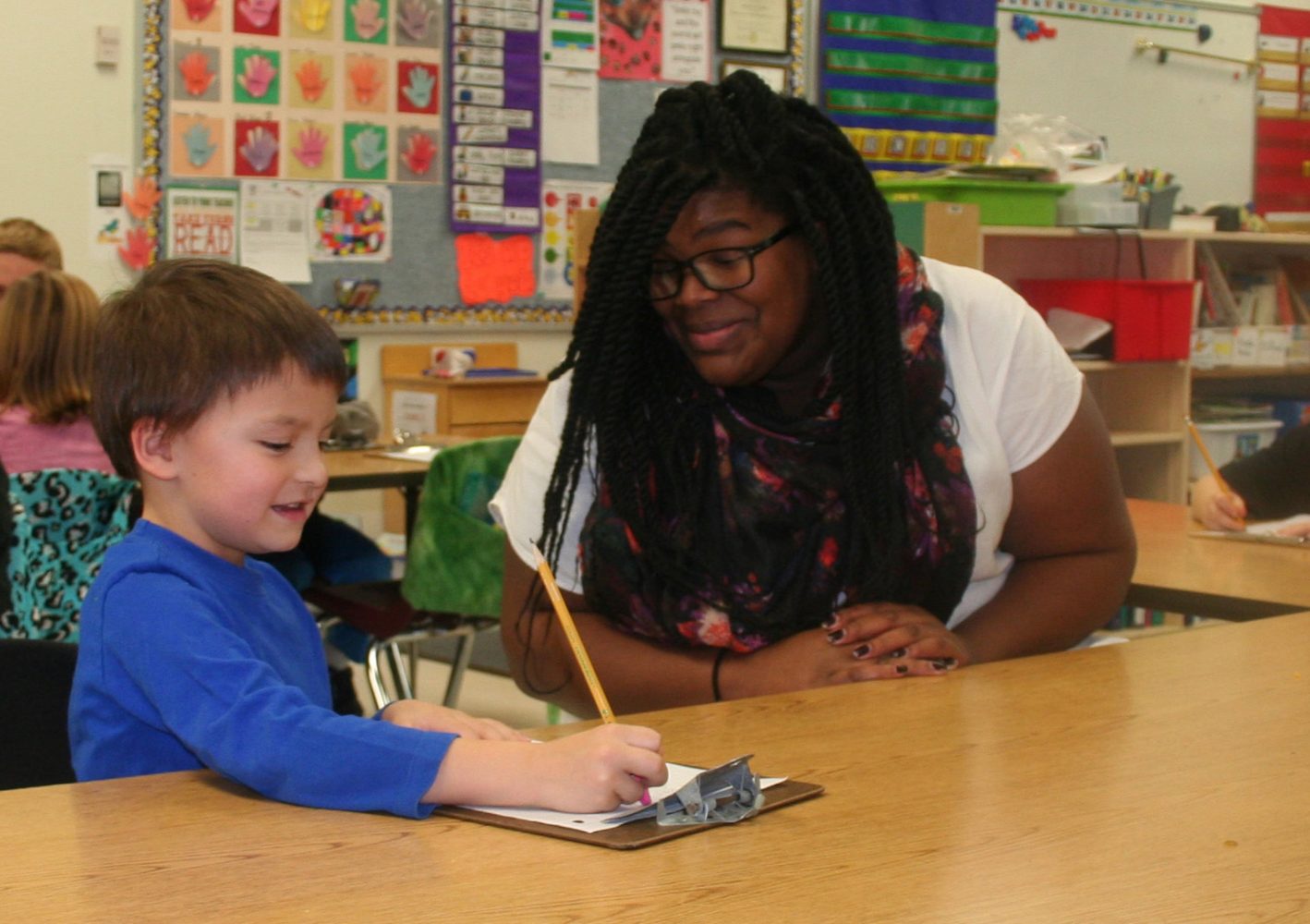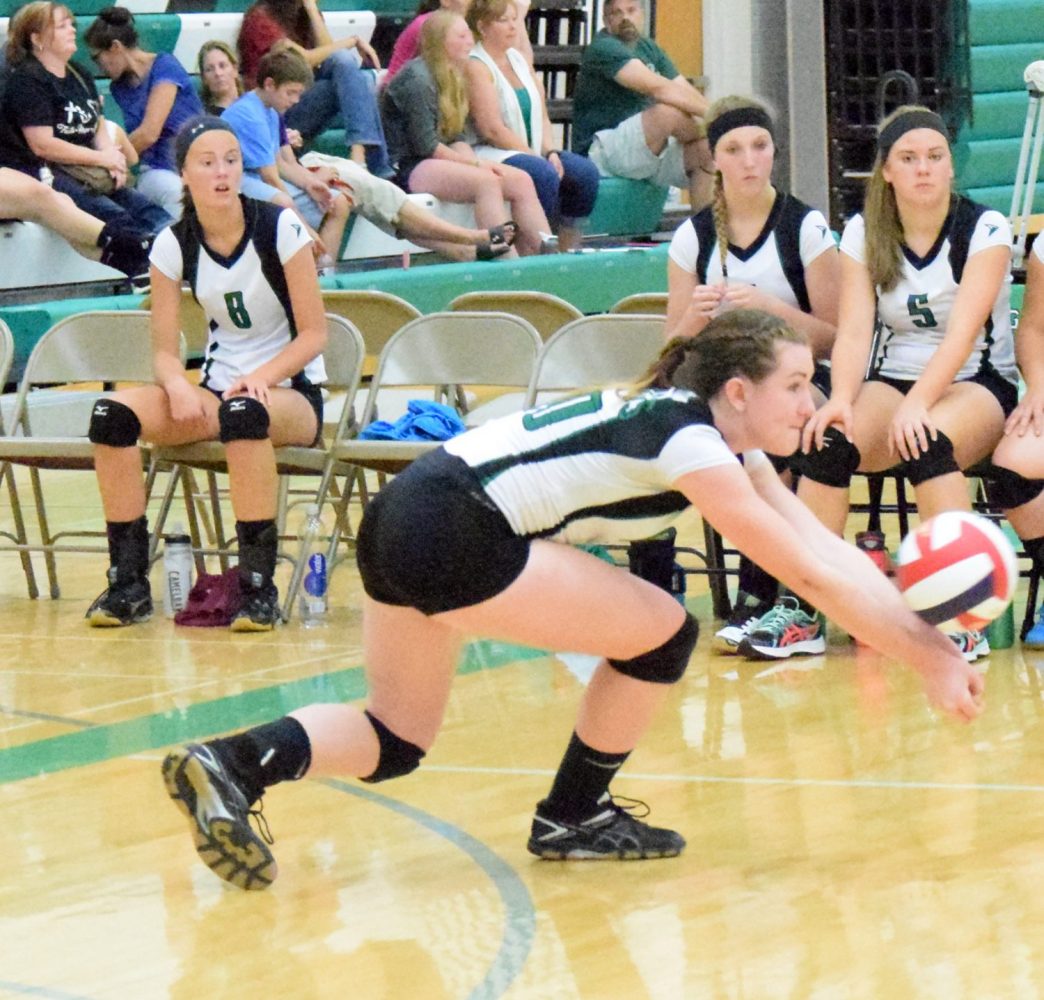Health department, RHS coaches team up to prevent sexual violence

By Eileen Persike
Editor
As Rhinelander High School’s male athletes lace up their cleats or running shoes, pick up a tennis racquet or practice their golf swing this spring, they will also be learning something altogether different.
The Oneida County Health Department (OCHD), together with RHS coaches, is implementing a pilot program called Coaching Boys into Men (CBIM). It is an evidence-based program specifically designed for youth sexual violence prevention that trains and motivates high school coaches to teach their young male athletes healthy relationship skills.
“If they know how to talk about respect and stand up for themselves when different things are happening then hopefully that will start to shift the school culture,” Maria Otterholt, OCHD
One in three teenagers reports knowing a friend or peer who has been physically hurt by their partner. When the health department received a sexual violence prevention grant in 2020, it was clear where they wanted to begin.
“When it comes to sexual violence prevention, youth is one of the areas you want to focus on right away,” said OCHD program lead Maria Otterholt. “We can have these conversations; teach youth about violence and prevention before it occurs.”
Otterholt said RHS activities director Brian Paulson was on board with CBIM from the beginning.
“We had a lot of buy in from Rhinelander High School so it wasn’t difficult to get it going,” Otterholt said. The program would have begun last fall, but like many other activities, there was a COVID-19 delay.
“If all of us are only teaching student athletes to play a sport for competition, then we are failing the student athlete,” Paulson said. “I am extremely excited about our coaches being able to help grow the young men in our programs. Through communication and discussion we will create building blocks of healthy relationships.”
What is unique about the program is that it doesn’t require youth sitting down for long discussions. Instead the coaches will be adding brief discussions occasionally throughout the season so it is interwoven into the training programs.
“It’s really just starting to have the conversations about respect and integrity and what it means to intervene if you see something happening that you know is wrong and really open the door to communication,” Otterholt explained.
The program not only asks the question of whether students would intervene if they saw something they knew was wrong, but goes one step further to ask how they would intervene.
“And that’s a lot of times where you get those blank stares,” Otterholt said. “This gives them the opportunity to verbalize some of those statements, and what would you say? What if it’s your best friend, how would you have that conversation? It gives them some practice and makes them feel comfortable talking about this stuff.”
Sports was chosen for the pilot program because coaches, who are in a distinctive leadership role, can have an impact on youth that no one else in their lives may have; and student athletes are often seen as leaders in their schools.
“If they know how to talk about respect and stand up for themselves when different things are happening then hopefully that will start to shift the school culture and make that almost a new norm and then that’s when real change can start to occur in the community,” Otterholt added.
The OCHD is looking at another program to implement down the road for female athletes, and then programming for basically all other youth. It is something Otterholt said she would like to implement at all high schools in Oneida County. But for now, external evaluators will collect data from the youth going through the program and the coaches who are executing it to figure out what this evidence-based program looks like in a rural northern Wisconsin community.
“Then take that evidence and approach the other schools and tweak it as we go and really have a community-wide intervention,” Otterholt said.
Leave a reply
You must be logged in to post a comment.




